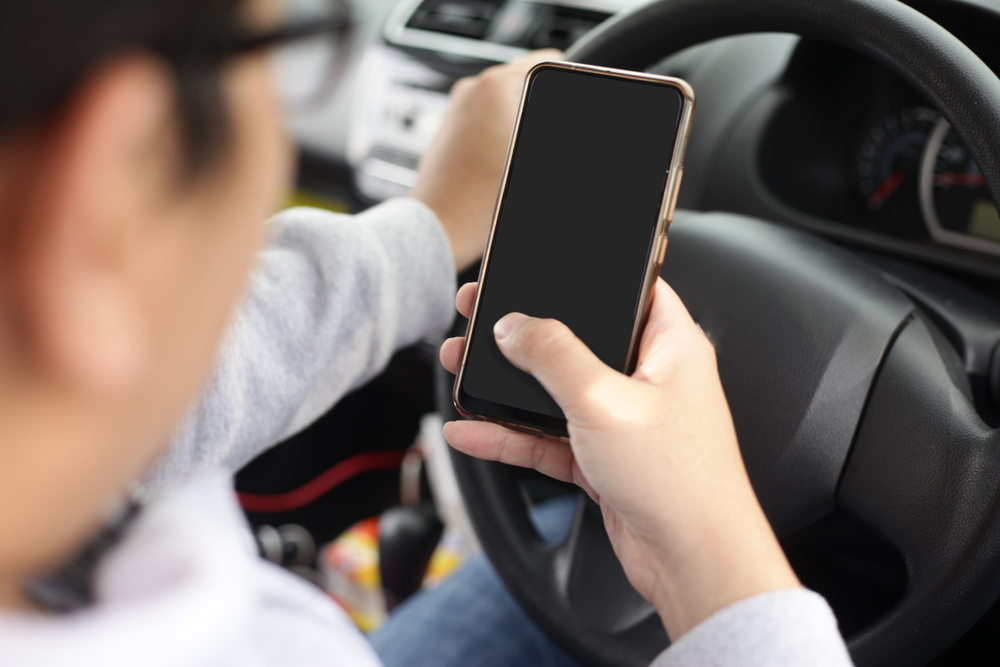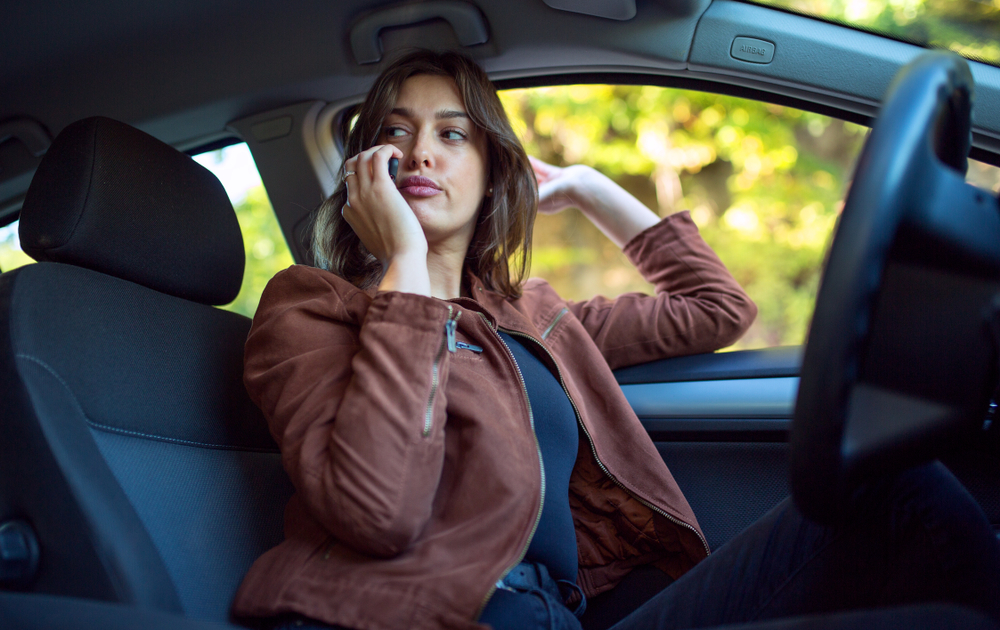Distracted driving is a big focus for Texas legislators and car insurance companies alike. But with so many different types of distracted driving laws that apply to different people, you can’t help but wonder: What exactly counts as distracted driving in Texas?
This article explores what distracted driving is, as well as what is legally considered distracted driving in Texas.
What Is Distracted Driving?
Distracted driving is any activity or situation that keeps you from fully focusing on driving your car and watching the road. Distracted driving can be divided into four main categories:
- Visual: taking your eyes off the road
- Example: trying to read a map or look at another passenger
- Manual: using your hands for anything other than steering
- Example: trying to open a soda bottle or unwrap food
- Auditory: listening to anything that’s not related to driving
- Example: listening to loud music or overhearing a loud conversation between other passengers
- Cognitive: thinking hard about something that’s not about driving
- Example: excessively worrying about an upcoming interview or presentation
Many forms of distracted driving involve more than one of these types. For example, having an intense argument with your partner car involves auditory and cognitive distractions. And the most dangerous forms of distracted driving, like texting, involve all four types. That’s why Texas takes these dangerous forms of distracted driving so seriously.
What Are Illegal Forms of Distracted Driving in Texas?
As you might expect, cell phone use is one of the most dangerous forms of distracted driving in Texas, and most distracted driving laws center around how and when you can use your cell phone while driving. If you improperly use your cell phone while driving in Texas, you can get a ticket, even if you’re not driving recklessly.
So, what forms of distracted driving can get you pulled over in Texas? Here are the major rules that apply everywhere in Texas:
- No driver can send or receive electronic messages while driving.
- Drivers cannot use a handheld device while driving through a school zone.
- Drivers under 18 cannot use handheld devices while driving.
- Drivers with learner’s permits cannot use cell phones at all for their first six months of driving.
Let’s look at these four rules in more detail.
1. No Sending or Receiving Electronic Messages While Driving
This is essentially the no-texting-while-driving rule. However, “electronic messages” mean much more than text messages. According to Texas law, an electronic message is any data that is read from or entered into a wireless communication device for the purposes of communicating with another person. Besides text messages, that includes:
- Emails
- Instant messages
- Social media posts
- Networking and dating apps
2. No Driving with Handheld Devices in School Zones in Texas
While driving in a school zone, you may not use your cell phone at all. That includes using your phone’s hands-free mode. Switching to speakerphone or a wireless headset can still get you pulled over if you’re in a school zone.
Keep in mind that traffic violations in school zones have extra penalties. Pay close attention to school zone signs that indicate the speed limit as well as when the school zone is active.
3. No Cell Phone Use for Underaged Drivers At All While Driving
Drivers under 18 are not allowed to use their cell phones at all while driving, including in hands-free mode. That means that your teen can’t use their phone for music or GPS navigation. If your teen’s car doesn’t come with a built-in navigation system, consider getting them a portable navigation device that they can mount on their dashboard and store when they’re not using it.
Before handing the keys to your Texas teen driver, make sure that you have a serious discussion about the dangers of distracted driving and what the cell phone laws are in Texas. The good news for your teen is that the law is very easy to remember: absolutely no cell phone use while driving.
4. No Cell Phone Use for New Drivers
If you’re over 18 and have a Texas learner’s permit, you cannot use your phone for your first six months of driving, including in hands-free mode. Therefore, it would be a good idea to invest in a portable GPS navigation system if your car doesn’t come with one.
After your six months up are up, remember that you’ll still be subject to any other distracted driving law for adults, including school zone restrictions and local laws.

Do Cities Have Their Own Laws for Distracted Driving in Texas?
Yes, cities in Texas have the power to enact their own distracted driving laws. For example, Arlington adopted a texting ban years before Texas did, and the city still has some of the strictest distracted driving laws in the state.
If you’re planning a road trip spending the weekend in another city, be sure to look up the local distracted driving laws. What is perfectly acceptable in your home city might land you a ticket and an ugly fine during your trip.
Are There Exceptions to Distracted Driving Laws in Texas?
There are two major exceptions to the distracted driving laws in Texas. First, you’re allowed to use your phone, including for texting, if your car is fully stopped at a red light. However, if you’re still using your phone when your car starts moving, you can be ticketed.
Second, you’re allowed to use your phone to communicate in an emergency, or if you think an incoming message or phone call might be related to an emergency.
Is Cell Phone Use the Only Illegal Form of Distracted Driving in Texas?
The answer is complicated. On the one hand, improperly using your cell phone or mobile device while driving in Texas is the only form of distracted driving that can get you a ticket by itself. However, other forms of distracted driving can be used against you in certain situations.
For instance, if you’re pulled over for driving recklessly because you were trying to unwrap a sandwich, both the police officer and the judge are far less likely to be sympathetic to your case. And if you cause an accident due to distracted driving, then you’re much more likely to be found at fault for the accident, which means that you’ll need to pay for the damage to your car either out of pocket or by making a claim with your auto insurance company.
Stay Safe: Don’t Be Another Distracted Driver in Texas
Every accident caused by distracted driving in Texas is tragic because it could have been prevented if the driver had been paying attention. Help make Texas roads safer by eliminating the driving distractions in your life.
Find Affordable Car Insurance in Texas Today
To fully protect your car and your family, make sure you have the right car insurance policy to help you when the unexpected does happen. All it takes is a few minutes for an online car insurance quote for affordable Texas car insurance with Baja Auto Insurance. Or you can visit one of our offices in person or give us a call at (800) 401-6840.






Follow us: